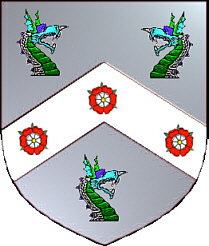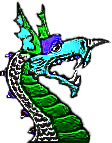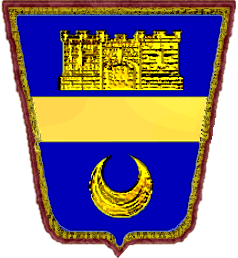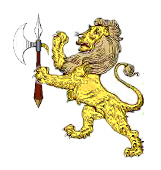Art by Betmatrho in
this Red-Thread Genealogy section for the
'Lost Tribes of Israel'
may
be freely used for personal use.
CLARK
/ CLARKE
[a Sept found under the Clans of
MacPhearson and Cameron]
The Clark/Clarke surname implied a clerk,
cleric, or clergyman and was recoginized by the MacPearson Clan. The
name MacPearson means 'son of the parson'.
Definition: Cleric, clerk, or scholar - one who can read and write. Also from the Gaelic "Mac a' Chlerich/Cleireach"; son of the cleric or, sometimes, clerk. During the Middle Ages, the common pronunciation of -er was -ar, so the man who sold items was the marchant, and the man who kept the books was the clark. At the time, the primary members of the literate class were the clergy, which in minor orders were allow to marry and have families. The term clerk eventually (clark) came to designate any literate man. Surname Origin: English Alternate Surname Spellings: Spellings: CLARKE, CLERK, CLERKE
Other Variations of the Clark/Clarke Surname: CLAERK LEARY MACALEERIE MACCLERICHE MACCLERIE MACCHLERICH MACCLERICH MACCLURICH MACCLERY MACCLEARY MACCLEAREY MACCLIRIE MACCHLERY MACELEARY MACINCLERYCHT MACINCLERIE MACINCLERICH MACLERIE MACLEARY MACLERICH MACLEAR MACKLEIRY MAKLEARIE MACLEERIE CLERK CLERC CLEARY CLERKSOUN CLERKSONE CLERCSONE CLERKE CLEARKSON CLARKSON CLERKSSON CLARKSONE CLERKSON CLARKE CLARK CLERCK CLERACH CLERIE

English Origins:
Coat of Arms:
A silver shield with a chevron between three
dragons' heads
and three roses on the chevron.

Motto: Fortitudo.
Motto Translated: Fortitude.
Scottish Origins:

Coat of Arms: A blue shield, with a gold fess between a gold castle in chief, and a gold crescent in base.
Crest: A blue lion rampant holding a battle axe.
Motto: In Deo speravi.

Motto Translated: In God have I trusted.
The Clark/Clarke surname implied a clerk,
cleric, or clergyman and was recoginized by the MacPearson Clan. The
name MacPearson means 'son of the parson'.
CLARKE (British)
The original meaning of Clark was ‘a man in
a
religious order, cleric or clergyman’. Merchants and tradesmen were
called
clerks. It is also thought that the surname might have derived from a
nickname
for a person who could read or write during the Middle Ages. Development and History
Clarke was the 32nd most common surname in Ireland in 1890 and there were approximately 15,400 bearers of this name. Counties in which this surname is most commonly found: Antrim, Cavan, Dublin, Louth, Mayo
The surname of Clark was also found as a sept of the Clans of MacIntosh and MacPherson.
lan Cameron's bond with its lands in Lochaber were established in the mists of antiquity, and their estates expanded into the hills of Loch Lochy, Loch Arkaig and Loch Eil, as the Clan's power grew. There was, however, intense competition for these sought-after lands and the Clan fought with a indomitable tenacity against all who challenged their sovereignty to this ancestral birthright. The Camerons became embroiled in a conflict with the powerful Clan Mackintosh over a territorial dispute in 1430, and remained fighting for over 200 years. Such was the ferocity of Clan Cameron that their war-cry struck terror into the heart of any warrior unfortunate enough to become their enemy - "Sons of the hounds come here and get flesh".
"The term "clericus" was originally applied to someone in a religious order but it was later applied to anyone who was a secretary, scribe, scholar as well as a cleric in the church. It is therefore not surprising that this occupational name became widespread when surnames began to be used. At the end of the 12th century, a Roger clericus held land in Kelso and in 1249 Alan clericus was a witness to a charter in Aberdeen. There were nine people from Scotland with that name who signed the "Ragman Roll" when King Edward I of England demanded in 1296 that all landowners had to swear allegiance to him. However, it is only after 1400 that we can be certain that it was being used as a surname rather than as a description of someone's occupation or status. There was never a Highland clan of that name. However, it is frequently found among the Clan Chattan confederacy. Clarks appear to have been a sept (under the protection) of the MacPhersons (whose origins were also from the church, "Mac-a Phearsain" meaning in Gaelic "son of the parson" in the days when celibacy of the priesthood was not enforced).
The name is common throughout the Lowlands and Highlands of Scotland. It is particularly prevalent in Caithness and there were important families of Clarks in places as far apart as Aberdeen, Edinburgh, Paisley and some have become landed families with baronetcies.
Two unrelated Clarks reached high office in the Swedish navy in the 17th century and the name is found in Sweden and Finland in the form Klerck. The American explorer George Rogers Clark (1752-1818) was of Scottish descent.
The tartan used by the Clerks is a variation of one called "Blue Clergy" which was worn by ministers, though it dates from the re-invention of tartan after the visit (orchestrated by Sir Walter Scott) of King George IV to Scotland in 1822.
Clark is currently the 14th most frequently found name in Scotland. The name is also common in England where it is often spelt Clarke.
Clark is regarded as a sept (sub-branch) of both Cameron and Macpherson.
Clark was the 14th most frequent surname at the General Register Office in 1995. From:http://www.rampantscotland.com/clans/blclanclark.htm
![The Red Thread Coat of Arms sample coat of arms [full]](http://the-red-thread.net/genealogy/bailey-stationary.jpeg)
Sample Coat of Arms - Full
http://genforum.genealogy.com/clark
